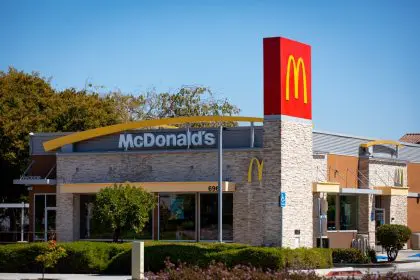A comprehensive guide to understanding and meeting your nutritional needs

Fueling your body with the right amount of food isn’t just about meeting caloric needs—it’s about empowering your strength, energy, and overall well-being. Despite what many restrictive diets suggest, eating enough is critical for optimal performance and sustainable health. Let’s dive into why nourishing your body adequately is the ultimate key to thriving.
Understanding your body’s fuel needs
Your body isn’t one-size-fits-all, and neither are its nutritional requirements. Several factors influence how much fuel you need daily.
Metabolic considerations
Your basal metabolic rate (BMR)—the energy your body uses at rest—lays the foundation. Add in activity level, muscle mass, age, and gender, and the total increases significantly.
Environmental factors
Things like stress, sleep quality, and even the climate you live in affect your energy needs. A busy lifestyle in a colder climate may require more calories to maintain energy and warmth, whereas a tropical setting may shift your hydration needs higher.
The dangers of under-fueling
Skipping meals or eating too little might seem harmless, but it often has detrimental consequences.
Physical effects
Under-eating can lead to muscle loss, reduced strength, and compromised endurance. Recovery from workouts also slows down, leaving you prone to injuries and fatigue.
Metabolic consequences
Eating too little can slow down your metabolism, causing your body to hold onto fat while burning muscle. Hormonal imbalances may develop, leading to energy dips, mood swings, and long-term health issues.
Building a sustainable nutrition plan
Creating a nutrition plan doesn’t have to be overwhelming. By focusing on meal timing, food quality, and variety, you can create a system that works for your lifestyle.
Meal timing
Eating at consistent intervals helps maintain energy levels and supports metabolic function.
- Strategic eating windows: Prioritize morning fuel, pre-workout snacks, and post-exercise recovery meals.
- Frequency optimization: Aim to eat every 2–4 hours to keep energy steady throughout the day.
Food quality and variety
The foundation of any good nutrition plan is high-quality food.
- Protein sources: Incorporate lean meats, fish, dairy, and plant-based options like beans and tofu.
- Complex carbohydrates: Add whole grains, fruits, starchy vegetables, and legumes for sustained energy.
- Healthy fats: Include nuts, seeds, avocados, and fatty fish for long-term fuel and brain health.
Practical implementation strategies
Turning a plan into action involves a few simple steps that make consistency easier to achieve.
Tracking methods
Keep a food diary or use apps to monitor what and how much you’re eating. This helps identify gaps in your nutrition and allows for adjustments.
Meal planning
Batch-cook meals, create grocery lists, and portion food ahead of time. Prepping meals in advance reduces decision fatigue and makes it easier to stick to your plan.
Pre- and post-workout nutrition
Support your activity with targeted nutrition:
- Pre-workout: Focus on carbohydrates for quick energy and protein to preserve muscle.
- Post-workout: Prioritize protein for muscle repair and carbohydrates to replenish glycogen stores.
Monitoring progress and adjusting
Regular evaluation of your nutrition plan ensures that it continues to meet your needs.
Physical indicators
Look for signs like increased energy, improved sleep, and better recovery times. Strength gains in the gym or increased endurance during activities are also good markers.
Performance metrics
Track workout capacity, strength progression, and recovery quality to ensure your nutrition aligns with your goals.
Long-term success strategies
Maintaining proper nutrition is about building habits that stand the test of time.
Consistency in habits
Stick to regular meal times, establish preparation routines, and track your progress to stay on course.
Adaptability
Be flexible as your needs change. Adjust your plan for seasonal shifts, activity level variations, and new goals to keep it relevant.
Final thoughts
Proper nutrition isn’t about restriction; it’s about providing your body with the fuel it needs to thrive. By understanding your unique needs and implementing sustainable habits, you can unlock your body’s full potential for strength, energy, and vitality. Let 2025 be the year you fully embrace the power of eating enough.














